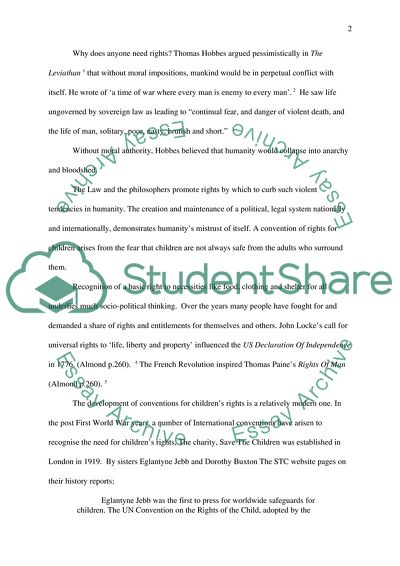Cite this document
(The Importance of Children's Rights Essay Example | Topics and Well Written Essays - 3500 words, n.d.)
The Importance of Children's Rights Essay Example | Topics and Well Written Essays - 3500 words. https://studentshare.org/law/1704691-the-discourse-of-childrens-rights-is-re-conceptualising-the-plight-of-childrenas-the-fault-of-the-adult-population-discuss
The Importance of Children's Rights Essay Example | Topics and Well Written Essays - 3500 words. https://studentshare.org/law/1704691-the-discourse-of-childrens-rights-is-re-conceptualising-the-plight-of-childrenas-the-fault-of-the-adult-population-discuss
(The Importance of Children'S Rights Essay Example | Topics and Well Written Essays - 3500 Words)
The Importance of Children'S Rights Essay Example | Topics and Well Written Essays - 3500 Words. https://studentshare.org/law/1704691-the-discourse-of-childrens-rights-is-re-conceptualising-the-plight-of-childrenas-the-fault-of-the-adult-population-discuss.
The Importance of Children'S Rights Essay Example | Topics and Well Written Essays - 3500 Words. https://studentshare.org/law/1704691-the-discourse-of-childrens-rights-is-re-conceptualising-the-plight-of-childrenas-the-fault-of-the-adult-population-discuss.
“The Importance of Children'S Rights Essay Example | Topics and Well Written Essays - 3500 Words”. https://studentshare.org/law/1704691-the-discourse-of-childrens-rights-is-re-conceptualising-the-plight-of-childrenas-the-fault-of-the-adult-population-discuss.


